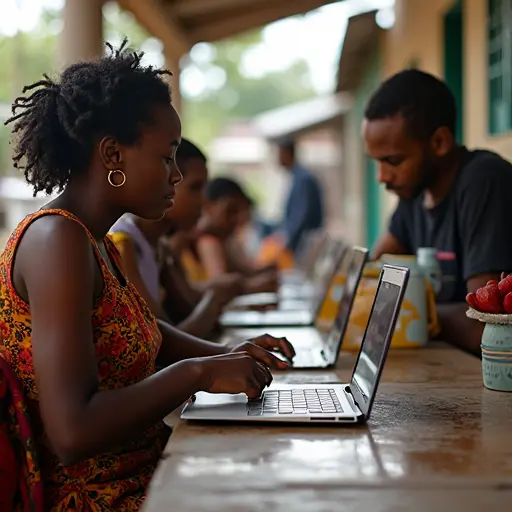
The Crypto Lifeline in Unstable Economies
In countries with fragile banking systems, cryptocurrencies are becoming essential financial tools. From Venezuela to Nigeria, people are turning to digital currencies to combat hyperinflation, send remittances, and access global markets. The 2024 Global Crypto Adoption Index reveals developing nations lead adoption rates, with India, Nigeria, and Vietnam topping the charts.
Real-World Applications
In Nigeria, crypto circumvents strict currency controls. Venezuelans use stablecoins like USDT to preserve savings as the Bolívar collapses. Filipino overseas workers save 80% on remittance fees using crypto instead of traditional services like Western Union. "When banks failed us, crypto became our financial backbone," says Lagos merchant Adebayo Okoye.
Barriers to Adoption
Despite growth, significant hurdles remain according to a 2025 SSRN study. Regulatory uncertainty tops concerns, with 78% of potential users fearing government crackdowns. Technological barriers include poor internet access in rural areas, while security fears persist after major exchange hacks. Financial literacy remains low, with only 32% understanding basic wallet security.
The DeFi Solution
Decentralized finance platforms are filling gaps where traditional banks won't operate. In rural Cambodia, farmers access microloans through DeFi protocols without credit histories. Brazilian favelas use DAOs for community funding. Chainalysis reports DeFi transactions in developing nations grew 215% year-over-year, outpacing developed economies.
Future Challenges and Opportunities
While crypto offers financial inclusion, volatility remains problematic. When Bitcoin crashed 30% in March 2025, Nigerian small businesses suffered heavy losses. Projects like Worldcoin's iris-scanning digital ID aim to create stable crypto economies. As IMF director Gita Gopinath notes: "The challenge isn't just access, but building resilient systems that protect the vulnerable."

 Nederlands
Nederlands English
English Français
Français Deutsch
Deutsch Español
Español Português
Português







